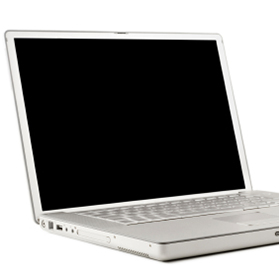- Community & News
- Heart
- Patient Stories
- Service Line
4 Benefits of Electronic Medical Records

Your health data is probably being housed online. But if so, you’d know it. You’re health care provider would’ve asked for consent.
While some people might be a little freaked out by the idea of their records being stored online, Dennis Kolb MD, Vice President of Clinical Integration, says he thinks most people like it. “The idea is that the more the patient has access to that record, the more they can actually partner with their doctor to improve their care,” he explains.
- Related: 5 Ways to be a Better Patient
More and more health systems are moving toward electronic medical records (EMRs) – and here's why:
#1: They’re Secure
Some people are concerned about internet hackers accessing their online records. As with any digital format, these worries are valid. However, in reality, using paper records could put people at a disadvantage in terms of the quality of their health care. Paper records could be misplaced or lost during data collection.
Along those lines, “What’s to prevent someone from breaking into an office and stealing all the records? These records have names, social security numbers, demographic information, copies of driver’s licenses that are typically made in a paper-based setting,” Dr. Kolb points out. “If people want to steal something, it is much easier to steal paper than encrypted electronic information.”
At TriHealth, we have audit trails in place in order to verify that those requesting access to certain electronic records, do in fact have the right – and need – to access that particular information.
#2: It Allows Your Doctor to Offer the Best Care Possible
On the inpatient side, for example, every patient gets a fall risk assessment and that information is stored in the EMR system. So, say you’re at risk for falling, if your doctor were to prescribe a medication with side effects that could make you prone to falling, an alert would fire in the system. “Those sort of things are never available on paper, but they can be accomplished with electronic records,” Dr. Kolb explains.
On the outpatient side, an EMR would be especially beneficial for health maintenance. The system can automatically remind your doctor when you are due for your next preventive health screening, like a mammogram.
#3: Your Health Records are Easily Transferrable
An EMR is designed to contain comprehensive standard medical and clinical data that’s gathered in your provider’s office, while also sharing information from all provider’s involved in your care. This means that if you’re across the country, for example, and a doctor needs to access your information for diagnostic or treatment purposes, they can potentially do so with a quick phone call and the touch of a button.
#4: It Allows You to be More Engaged in Your Health
An EMR, like MyChart, gives you the ability to log in and view health records you’d otherwise never be able to access. In turn, you have a better understanding of your health so you know what questions to ask, giving you the ability to be a better advocate for your health care and health goals.
Related Articles
- Community & News
- Heart
- Patient Stories
- Service Line
- Treatments
- Community & News
- Conditions & Care
- Orthopedics
- Patient Stories
- Service Line
- Treatments